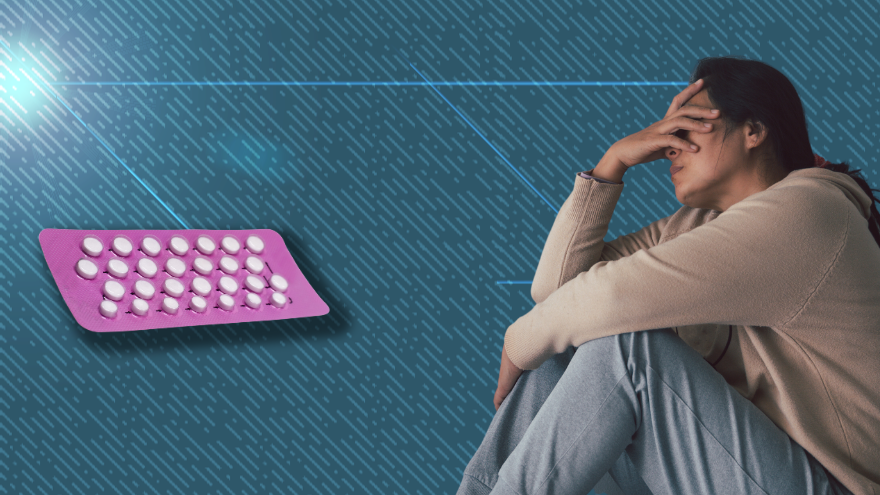A new study found women who start taking birth control pills as teenagers are 130% more likely to have symptoms of depression.
A team of researchers analyzed the results of health surveys completed by 264,557 women and found that oral contraceptive (OC) users reported a 92% increase in depression. Moreover, the study found women who begin the pill at or before age 20 are significantly more likely to have depression symptoms than women who do not use oral contraceptives.
“Our findings suggest that the use of OCs, particularly during the first 2 years, increases the risk of depression,” states the report which was published by Cambridge University Press on June 12. “Additionally, OC use during adolescence might increase the risk of depression later in life. Our results are consistent with a causal relationship between OC use and depression, as supported by the sibling analysis.”
“Although the risk was not as pronounced beyond the first 2 years, every OC use was still associated with an increased lifetime risk of depression,” the study noted. “Physicians and patients should be aware of this potential risk when considering OCs, and individualized risk–benefit assessments should be conducted.”
Rates of depression remained high even among teen users who stopped taking the pill.
This study is one of the largest and most wide-ranging ever completed on the subject. It also compounds other recent research linking oral birth control to depression in women.
“Although contraception has many advantages for women, both medical practitioners and patients should be informed about the side-effects identified in this and previous research,” says Therese Johansson of the Department of Immunology, Genetics and Pathology at Uppsala University in a statement. Johansson was one of the researchers who led the study.
“The powerful influence of contraceptive pills on teenagers can be ascribed to the hormonal changes caused by puberty. As women in that age group have already experienced substantial hormonal changes, they can be more receptive not only to hormonal changes but also to other life experiences,” she added.
According to the Centers for Disease Control and Prevention, approximately 65% of women in America between the ages of 15 and 49 used some type of contraception between 2015-2017. Of these women, 12.6% used birth control pills and 10.3% used long-acting reversible contraceptives such as injections or intrauterine devices. The most common form of contraceptive was female sterilization (colloquially known as “getting your tubes tied”), although it was significantly more common among women over 30.
About 17% of females between the ages of 15-19 used the pill as did about 20% of women between 20-29 and 11% of women ages 30-39. Birth control pill usage increased with higher education. Women who had obtained a bachelor’s degree (16.3%) were more likely to use the pill than women with some college education (10.1%), women with a high school diploma or a GED (7%), or women with no high school diploma or equivalency (4.9%).
The Mayo Clinic reported in 2019 that women are twice as likely than men to be diagnosed with depression. The clinic did not acknowledge birth control as a possible contributing factor.

